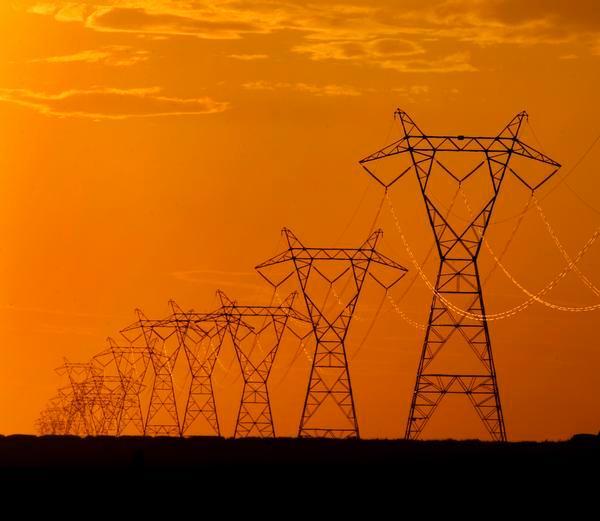A request by Black Hills Energy to raise its residential electric rates in Colorado by nearly 14% could prove to be a test case of the state’s efforts to focus on affordability in the face of growing complaints about utility bills.
The South Dakota-based company is seeking its first rate increase in eight years. Black Hills recently cut its initial request for $36.7 million in additional revenue by $11.6 million, or 32%.
“We’re reducing our request pretty significantly given some of the concerns we heard from some of our customers,” said Michael Harrington, the company’s regulatory director.
Despite the reduction, elected officials and residents across the utility’s territory in southern Colorado are urging the state Public Utilities Commission not to approve any increase. They argue that Black Hills charges higher-than-average rates in one of the poorest regions in Colorado.
The area includes Pueblo and Fremont counties. The PUC is hearing evidence in the case this week and will hold a remote hearing to take public comments 4-7 p.m. Thursday.
“Our median household income is at least 39% below the statewide median and even further below than the northern Front Range median household income,” Emily Tracy, a Canon City council member said during a PUC public meeting Nov. 19.
“We need an electric provider that can lead us into an electrified future, not lead us to the poor house,” Tracy said.
Cindy Schonhaut, director of the Colorado Office of the Utility Consumer Advocate, has recommended that the PUC say “No” to Black Hills.
“The Commission should not approve any rate increases in this case based on its mission and obligation to serve the public interest. The Commission can base this outcome on its commitment to affordability as a critical part of its regulation of utilities,” Schonhaut said in written testimony submitted to the PUC.
Legislation in 2021 directed the PUC to consider ways to address the impacts on communities that have been negatively affected — economically, environmentally — by previous decisions.
In 2022, huge jumps in heating bills across Colorado in late 2022 prompted Gov. Jared Polis to direct state agencies to work with each other and utility companies to reduce the “energy cost burden” on customers. The doubling and tripling of heating bills that winter were driven in part by high natural gas wholesale prices and colder-than-usual weather. A joint legislative committee held hearings in 2023 on rising utility bills in Colorado.
That same year, he PUC wrote what it called an affordability work plan in 2023. “Affordability is a critical part of the Commission’s oversight as it regulates Colorado gas and electric utilities,” the PUC said.
Schonhaut told The Denver Post that the Black Hills rate request could be a kind of “test case” of the PUC’s focus on affordability for customers. “We believe it would be the first time they put affordability front and center.
“It’s also the first one of these recommendations put before the commission since it established the principle of giving paramount consideration to affordability for consumers,” said Schonhaut, referring to her testimony.
In her filing, Schonhaut said attorneys in her office advised her that the Colorado Supreme Court has affirmed the PUC’s responsibility to “protect the public interest regarding utility rates and practices” and that the commission has broad authority to do what it deems necessary “to accomplish the legislative functions delegated to it.”
The PUC has often approved lower rates than what companies sought. In November, the commission approved a $130.76 million increase in natural gas revenue for Xcel Energy, down from the requested $171 million increase.
Schonhaut’s office has asked the PUC to reconsider the size of the increase based on previous rate hikes.
Harrington of Black Hills rejected the idea of basing a decision entirely on whether rates are affordable. He said the company must maintain the system and provide safe and reliable service while charging a reasonable price. The cost to do that has increased since the company’s last rate hike, he said.
“We have invested more than $370 million in infrastructure improvements” over the last eight years, Harrington said. “And we have seen operating expenses increase: labor, benefits, contractor costs, insurance costs.”
Black Hills’ original rate request was an 18.7% jump in monthly residential bills from the current average of $109.67 to $129.81. The boost in monthly bills for small businesses would have been from $251.20 on average to $276.26, or 14%.
Under the lower request, residential bills would rise on average 13.8% a month and the average monthly bill for a small business would go up by 9.5%, according to a revised filing by Black Hills.
Speakers at recent meetings held by the PUC in Pueblo and Canon City suggested that Black Hills shareholders should bear more of the burden. A decision is expected in February.
“The families of Fremont County simply cannot bear an increase of this size in the cost of a service they cannot choose to do without,” said Fremont County Commissioner Debbie Bell. “Perhaps it is time for Black Hills Energy to implement austerity measures just like county government, city governments and families in our community have been doing for many years.”
Updated at 2:46 p.m. Dec. 3 to correct the size of the rate increase in the lede.
Get more business news by signing up for our Economy Now newsletter.
Originally Published:










